Translations 677
Gender Equality, Marriage and Family

Temperature Rising:
Gender Equality, Marriage and Family in the New Constitution
This is a dialectical and modern Constitution, if tradition is to be broken, tradition is to be broken, because breaking tradition is also a revolutionary act. Under socialism there is no room for any kind of discrimination against humans. Love does not have sex,” stressed intellectual Miguel Barnet.
————————————————————————-
Author: Susana Antón | susana@granma.cu
July 22, 2018 12:07:10
A CubaNews translation.
Edited by Walter Lippmann.
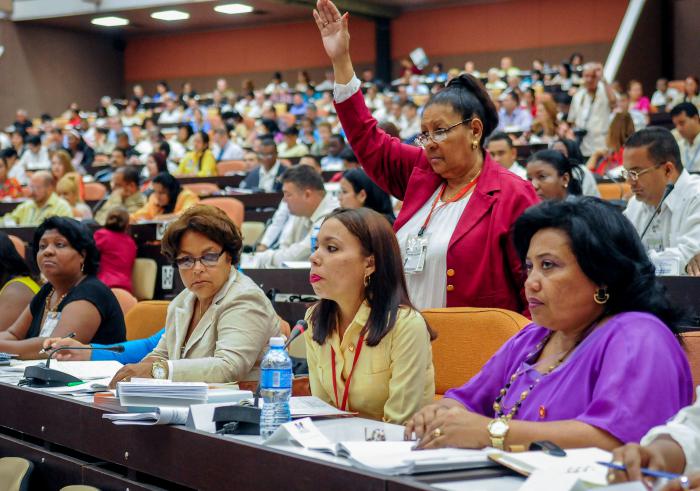
1st Period of Sessions of the IX Legislature of the National Assembly of People’s Power July 2018, at the Palacio de Las Convenciones, Photo: José Manuel Correa Photo: José Manuel Correa
As part of the analysis of the Draft Constitution at the First Ordinary Session of the Ninth Legislature of the National Assembly of the People’s Power, some of the issues discussed were gender equality, marriage and family as part of Article 68.
Mariela Castro Espín, a deputy for the municipality of Plaza de la Revolución, commented that with Article 68, Cuba places itself, from a perspective of comprehensive protection of people because of their sexual orientation and gender identity, among the leading countries in the recognition and guarantee of human rights.
“This proposal for protection is the result of the maturity reached by the revolutionary process that legitimizes and protects social relations that materialize in various types of families, from which the State’s duty to protect them and not to discriminate against them is derived,” she said.
She expressed her agreement with the provisions of Article 68, which provides for the voluntary union of two persons with the legal capacity to do so and is based on the rights and duties of spouses.
Castro Espín submitted for the plenary’s consideration that the continuation of the text of the article should be left to legislation because it is specific and refers to the obligations of couples who choose to be mothers and fathers, in addition to the fact that it is based on the absolute equality of the duties and rights of the spouses and on the conditions that favor the achievement of their ends.
“It would result in an axiological and normative contradiction in the letter of the constitutional bill between the grounds of discrimination, sexual orientation and gender identity in Articles 39 and 40, and we would discriminate against families with gay parents in Article 68,” she added.
On the other hand, she stressed that Article 41 stipulates that the State works to create the necessary conditions to facilitate equality of citizenship and “the best way to say it is to do it”, she concluded.
For her part, the Secretary General of the Federation of Cuban Women, Teresa Amarelle Boué, commented that it is a step forward that it has been taken away that marriage is the consensual union between a man and a woman..
However, there is no mention of adoption in this Article, and this is an issue that should be left to the Family Code and that should govern what marriage and other issues will be like.
“No one can be discriminated against because of their orientation. All rights are for all people and it is up to couples who want to be mothers and fathers to decide,” said Teresa Amarelle.
On the subject, Homero Acosta commented that the concept of matrimony that has been changed has an impact on the continuation of the article because it has a vision of a single-parent family and the issues related to children have a different formulation in the article.
The issue of children is regulated in Articles 69, 70 and 72, which refer to a concept of the family. “In no way does it limit the obligation of parents, whatever marriage in which it is constituted,” he said.
Yolanda Ferrer, deputy for Pinar del Río, commented that marriage must rest on the absolute equality of the duties and rights of the spouses and the law must determine the way in which it is constituted.
“We are taking a revolutionary and very important first step. There is no justification for depriving the happiness of forming a family. We have to face prejudice and make the justice we defend inclusive,” she said.
Speaking again, Deputy Mariela Castro Espín stated that “if we consider the reproductive issue, we must be consistent in giving these guarantees to all families”.
Miguel Barnet also commented that we are entering a new era. “This is a dialectical and modern Constitution, if tradition is to be broken, tradition must be broken, because breaking tradition is also a revolutionary act and under socialism there is no room for any kind of discrimination against humans. Love doesn’t have sex,” she said.
At the conclusion of the plenary debate on the subject, the deputies agreed to leave Article 68 as it stands and to include the terms “families” throughout the Constitution.
Manolo Núñez and the Fangio Kidnapping

Manolo Núñez and the Fangio Kidnapping

By Juan A. Martínez de Osaba y Goenaga
A CubaNews translation.
Edited by Walter Lippmann.
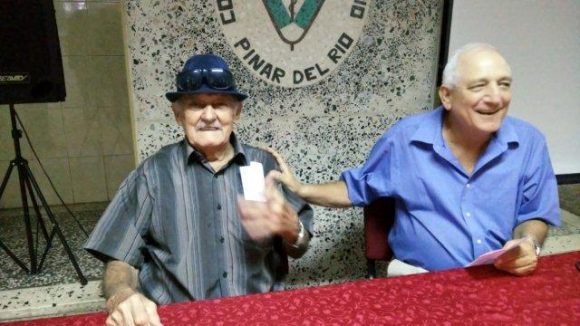
For Colonel Luis González
Manuel Núñez León, 89 years old and with seven children, is known as Manolo. He was born on September 4, 1928, at the El Rosario estate, today a Cooperative in the municipality of Puerto Esperanza. He currently lives alone in a modest house in San Vicente, between Palenque and Cueva del Indio, in Viñales. There, when he was able to locate him, Commander Faustino Pérez visited him several times.
It takes a lot of work to get words out of him that talk about himself. Always behind, against all bad things. In spite of accumulating so many years, he still has a prodigious memory and the same old mood, wearing a Carlos Gardel hat and a gray mustache. His life has been fascinating. Because of their way of being, those who pass by them cannot imagine the story they are carrying with them.
I asked him who his team was in the ball and he answered categorically: Pinar del Río. When I went further back, he repeated: Pinar del Río. After several inquisitions: “Well we were from Almendares, one was born like this”.
He is not satisfied with the film about that action: “I was invited to the presentation. When he finished they asked me what I thought and I said that some things didn’t happen like that and that the name of none of the members of the command didn’t appear. He silently accepted the explanation, because it is not purely historical, but fiction based on historical facts. He grimaced a couple of times and never came back.
The family lived next door to Los Cayos, where Antoñica Izquierdo was a transcendent figure for her preaching. They, plunged into ignorance and, in turn, helped by the enigmatic and kindly woman, took the sermons and began to heal themselves with cold water, or to try to heal themselves. Antonica, in her preaching, advised not to vote for corrupt governments, which brought her many consequences. That detail penetrated deeply into Manolo’s ideas.
The family did not vote and suffered the cruel eviction. They were placed on the side of the road with their articles and their gaze fixed on the sky, as if looking for a star to take them away or open the way for them. Several families were evicted in the style of Realengo 18 Oriental. From then on, life became much more difficult for them. Manolo recalls: “That area was owned by the landowner Pedro Blanco Torres, senator of the Republic, who demanded that they vote for him”.
According to her account, they sent thirteen wagons for thirteen families, which they took to a junction far from the Rosary, so that they could manage as best they could. The rural guard arrived and took some of the elderly prisoners to Pinar del Río. But the Cuban people have great solidarity and families in the new area took the “Bedouins” to their homes, especially the children.
Advised by several friends, he decided to go to Havana, but he was penniless. Then, in a conuco loan, he managed to sow and collect 100 quintals of malangas, which he sold for a peso each. And with the hundred pesos he went to the capital.
When I arrived in Havana, I joined the Orthodox Party of Eduardo Chibás, for which Fidel was running for the House of Representatives. I was accepted because of my revolutionary and peasant way. On Marianao’s 51st Street, Fidel made his last public speech to be elected. Coincidentally, when he finished, he called me and asked where I was from, what I was doing there and those things he was asking. I told him the story of my family and the Rosary Community. And look at the way things are, where he first came to my province, he went precisely to create the Cooperative in El Rosario. Maybe I had something to do with it. [1]
Then came the 1952 coup d’état, where all constitutional guarantees were closed and Manolo, along with other Orthodox militants, were left without a political compass, until they joined the July 26th Movement.
Juan Manuel Fangio, known as El Chueco and El Maestro, was born in Balcarce, Argentina, on June 24, 1911, and died in Buenos Aires on July 17, 1995, at the age of 84. He is considered one of the greatest motorist drivers in history and at his peak, the best.
Using the Alfa Romeo, Maserati, Mercedes Benz and Ferrari cars, as well as the Ford and Chevrolet, between 1929 and 1958 he was proclaimed five times Formula 1 world champion in the 1951, 1954, 1955, 1956 and 1957 editions.
Batista’s tyranny was trying its best to attract attention with some cultural and sporting activities, including boxing fights, as the popular uprising was growing stronger. Thus, in 1957, they designed the Cuban Grand Prix in motor racing. Fangio won unquestionably. The idea of kidnapping has been around ever since, but it was not possible for several reasons. The same could not happen now.
On February 24, 1958, the tyranny tried to re-edit the competition. Approved by the highest leadership of the July 26 Movement, Faustino Pérez, who was leading the underground struggle in Havana, planned a reckless action of universal significance and activated the command that would kidnap the great champion, led by Oscar Lucero.
The objectives set out were fulfilled to the letter: to protect the life of the champion with all our might, to demonstrate the upward force of the Revolution in arms, to avoid or minimize the connotation of the race and to draw the attention of the world to the fight against Batista.
First steps:
-It was planned to kidnap him on the exit of CMQ Television, but it could not be because of the public and the strong police protection. —The wagons were bet to execute the action; it was impossible. Among those mobilized was Manolo Núñez.
-On a visit of the champion to the National Hotel, but it was the most protected place.
-When I was walking along the route of the race around Havana’s Malecón, it was very well guarded.
And the time was passing. Then Faustino, a man of strong character and courage at all costs, said to Lucero, “You do it, or I will do it”. And from there the hero came out to accelerate the action. According to Arnol Rodriguez in his book Operation Fangio, Faustino later regretted speaking to a religious, disciplined and courageous man, who soon after became a martyr.
As is often the case, there are many versions of the event. From here we present Manolo Núñez’s:
On the night of February 23, 1958, a command of three cars (all with Thompson machine guns and handguns), loaded with three revolutionaries each and well-armed, stood in the vicinity of the Lincoln Hotel, where the champion was staying.
It was all in the blink of an eye. At 8:40 pm, Fangio went down to the hotel lobby and established his identification. The action has begun.
Manuel Uziel and Primitivo Aguilera entered the lobby and headed for the “Tres Molinos” bar. At the same time, several posts were erected. Manolo had to cover the entrance to the Hotel, machine gun in hand. Uziel approached the group where Fangio was and called him. The Argentinean was displeased: “Why do you want me?” Uziel then said: “I am from the 26th of July Movement and we are going to kidnap him”. After the surprise and with a gun to his side, the champion said, “Let’s go.
Some, perhaps from the protection team to the champion, moved suspiciously and Manolo’s voice echoed in the room: “If anyone moves again, I’ll shoot and there won’t be one left alive”. Uziel, without hesitation for a second, kept Fangio under gunfire and went out with him through the door of Virtudes Street. He then put the champion in the first car and started fast.
The hero’s eyes shine when he remembers his sentence: “We’ll be stationed here, and in five minutes nobody will leave, because nobody will die. And no one dared to leave.
The retreat took place in perfect organization, everyone went to the wagons stationed. This is what Arnol Rodríguez, who has already disappeared, tells us in the book quoted:
Immediately the three cars started moving along Virtudes Street. Oscar’s, the Black Monk, accompanied by his wife Blanquita, who was the closest to the hotel’s door, was the first one to start, although the car immediately got in front, driven by Primitivo Aguilera (El Pibe), accompanied by Manuel Uziel and Reinaldo Rodriguez, was a green Plymouth, the third a grey Buick with Carlos García (Cara Pálida) at the helm, occupied by Ángel Payá, Manolo Núñez and Ángel Luis Guiú (William)[2].
According to Manolo, Oscar Lucero’s return was the last one. There was only one obstacle, other than the kidnapping. The second one hit another and Carlos Garcia, the driver, had to go to the police station to testify. At Manolo’s initiative, they withdrew in time.
I immediately reacted: “Pale Face, you have to go with the man to the barracks because of the accident, give me your gun”. They left with the policeman, who never suspected the action, everything flowed normally. We walked along the path we were coming from and then Oscar Lucero’s car and his wife Blanquita picked us up and took us to the first place where they took Fangio: the house of Uziel.
Once at the station, the officer on duty asked them to agree among themselves, as the coup had been simple. Pale Face proposed to pay the man and everything was just as if nothing happened.
The authorities were afraid that the great champion would suffer some injury and even death, because the whole world would fall on them. They could not imagine one of the orientations: “Take care, no one should be hurt or killed, but first you, before Fangio, must protect the life of the champion at all costs…”
When I read the book of marras, I understood that in the things of life, chance plays a determining role. Maybe everything would have been pitiful. Let’s see how Arnol narrated a tragicomic anecdote in the definitive home of the New Vedado, which hosted the champion:
A few houses nearby, on the same block, lived a Tropicana dancer who was called the Mamboleta, a lover of Batista’s politician and ruler Rafael Díaz Balart. This motivated that at every moment, cars of the repressive forces parked almost in front of him, and it was the case that when Haydeé Santamaría Cuadrado and Armando Hart Dávalos, who was distracted, left the house, he went to one of those cars and only Haydeé’s quick reaction could prevent him from taking it. [4]
The outcome is known. Fangio felt at home and befriended his captors, who went out of their way to pay attention. The race took place without him and was one of the most cruel, as it skewed the lives of several fans, when a car at full speed lost control and was over the spectators. The great champion saw the accident on television and decided not to compete again.
That night of February 24, another command was created, now with the difficult and risky mission of returning Fangio.
Faustino’s order had been categorical: Well, come on, you yourself, Arnol, are responsible for the delivery. I don’t have to tell you anything else. Go in Emmita’s car and have Flavia (Berta Fernández Cuervo) accompany you. Only a few glasses were added to his usual clothing[5].
It was all just a matter of asking for it. At the proposal of the Argentine Embassy, the return was made in an apartment located at Calle 12, No. 20, 11th floor, between 1st and 3rd floor, El Vedado, in the home of Mario Zaballe, military attaché of that Embassy, who was outside the country.
That’s how Arnol remembered it:
After the doorbell rang, they opened the access door to the inside, we waited for the elevator and, once inside, we dialed the 11th floor. We penetrated and saw three lords of very serious countenances. Fangio immediately, changing his face and almost smiling, broke the ice, saying, “These are my kind kidnappers, my kidnapping friends.
The culmination of one of the best prepared actions, with a popular and international connotation, as the press around the world turned to the kidnapping of the great champion, who ended up a friend of the revolutionaries because of the attention he received.
After 1959, Manolo Núñez, whom on October 17, 2017 we had as a guest at the Peña of the Scientific Veterinary Council of Pinar del Río, would obtain military degrees and fulfilled risky tasks in the Escambray Cleanup. Among other actions, he was in charge of taking the twelve Malagones to Ciudad Libertad, to place them under the command of Commander Camilo Cienfuegos.
The champion would visit Cuba in 1981 and met with the highest authorities, including his captors.
1] Manolo Núñez: Scientific Veterinary Council of Pinar del Río, October 17, 2017.
2] Arnol Rodriguez: Operation Fangio. Editorial Ciencias Sociales. Havana, pp. 31 and 32.
3] Manolo Núñez: Idem.
4] Arnol Rodriguez: Ob. Cit. p. 36.
5] Ibid.
6] Ibid.
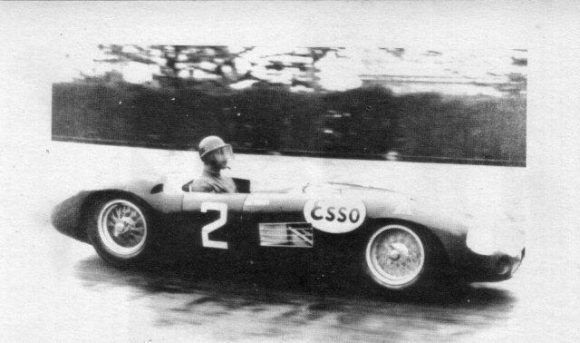
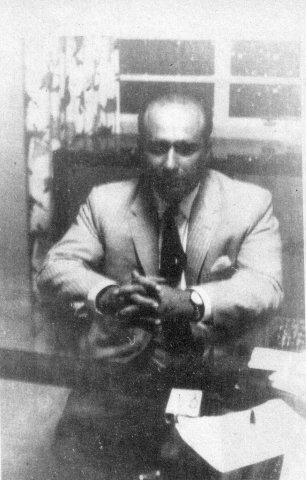
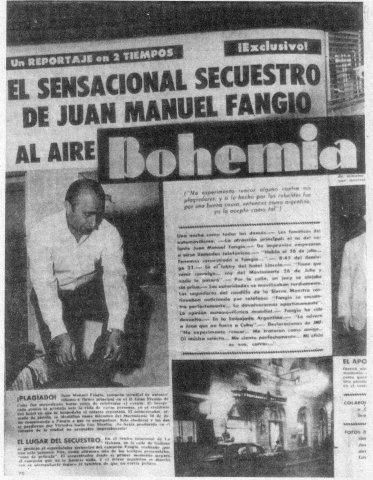
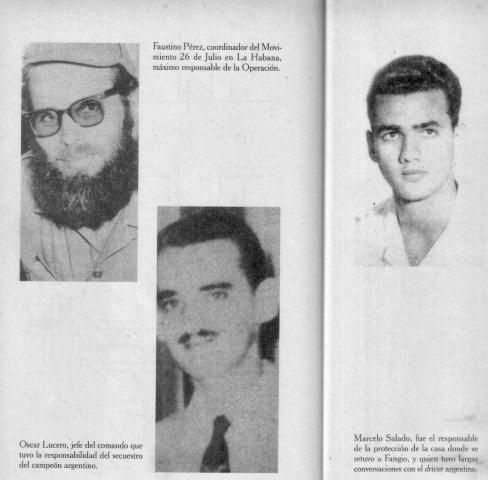
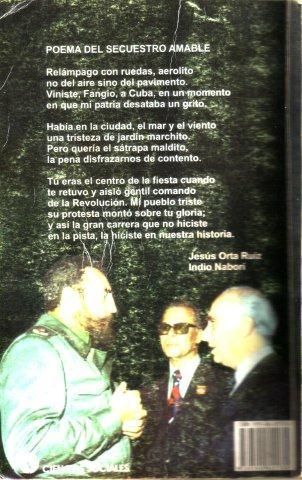
Travelers and Tourists

Travelers and Tourists
 By Graziella Pogolotti
By Graziella Pogolotti
digital@juventudrebelde.cu
A CubaNews translation.
Edited by Walter Lippmann.
The large-scale tourism industry has a relatively recent history. Its initial impulse came after World War II. The rise of left-wing movements and the pressure exerted by powerful trade unions led many countries to pass laws making paid rest compulsory. For many sectors of the middle classes, the possibility of enjoying holidays was opened up.
At the same time, numerous publications disseminated the cultural values located in Third World countries. Appropriate marketing operations designed tours to famous places for destinations that were docile to the indications of trained guides. The trip was no longer an adventure. Everything was planned in advance. Back home, the tourist would not remember much of the experience lived in the pyramids of Teotihuacán, but would arrive with a bunch of trinkets billed as souvenirs.
The traveler, on the other hand, is moved by the search for the unusual. He’s going to go to some of the most remote places in the cities. You will observe the human landscape without disdaining typical foods in some modest restaurants. I confess to having belonged to this species in my younger years. When I couldn’t afford the pennies to take on bigger adventures, I decided to start at home.
At the time, I had just finished my college degree. The studies of Art History had revealed to me the importance of our colonial legacy. I obtained the assistance of two compañeras to launch us on the adventure of discovering Trinidad. We stayed in a room on the corner of Media Luna and Desengaño. The names of the streets, such as the Habaneras of Amargura, Mercaderes, lficios or la Muralla have always exerted on me a remarkable power of poetic evocation. But the Trinitarian atmosphere of those days was far from what we know today.
There were the houses of yesteryear in the midst of an impressive misery. Barefoot and ragged, the children roamed the streets, sometimes reduced to begging. The ruin of the Valle de los Ingenios plunged the city into a poverty in which some families tried to preserve the dignity of the past.
It’s been a few years. In the 60’s of the last century, in the middle of the fight against the bandits, a traveling library went along the road between Cienfuegos and Trinidad. It offered book loans for children and adults. I wanted to know the experience in a direct way. The newly-literate peasants encouraged their children to acquire the habit of reading. On that occasion, I met a unique character.
Carlos Joaquín Zerquera was one of those local historians who narrated countless anecdotes of characters from the past. He did it so neatly that his murky marriage intrigues seemed to be happening in the contemporary world. His energies were focused on the effort to rescue the Brunet Palace in order to turn it into the Romantic Museum. Resources were scarce.
Nicolás Chao, Party secretary in the region, who also sponsored the creation of the Grupo Escambray, led by Sergio Corrieri, was able to listen to the Trinitarian researcher’s homily. Little by little something was done. Recognition of the need to preserve our heritage was beginning to take shape. We did not know, in those distant 1970s, that we were investing in a future tourism that would become one of our options for economic growth. Trinidad has been reborn and has recovered its best artisan tradition.
The traveler can enjoy the uniqueness of its urban environment. Let us take great care of your specific features. Let us not fall into the mimetic temptation of Cancunizing it.
On holiday days, we can try the adventure of discovering our country. Sometimes, you don’t have to walk very far to stumble upon the surprise of the unusual. In the Havana municipality of Cotorro is the Church of Santa María del Rosario, a rural place devoured yesterday by the galloping growth of the capital. Nicolás de la Escalera, the oldest painter with a name registered in our history of art left his mark there.
In our small country, there are many corners to be rediscovered. To do this properly, we need to move, relentlessly but steadily, towards a change of mentality. Let’s not confuse the popular with the uncouth. Let us discard the reductionist vision of culture as an ornament and recognize in it the nourishing source of a spirituality that defines our uniqueness, that is, our identity. Managing with intelligence, avoiding the banal commercialization of the peddlers, is a good that can translate into tangible material benefits.
Let us abandon the formal routine of commemorations. Let us make each of them an event open to wider horizons. In these days we have remembered the bicentenary of the San Alejandro foundation.
Let us abandon the formal routine of commemorations. Let us make each of them an event open to wider horizons. In those days we remembered the bicentenary of the foundation of St. Alexander. The history of the Academy was one of light and shadow. The triumph of the Revolution brought about a substantial change by bringing about the emergence of the long-neglected artistic avant-garde. The tribute to the date would be an opportunity to find in our National Museum the work of those who passed through it along with the insurgents who rebelled against the obsolescence of their curricula.
Welcome to the sunny days and the beach, as well as the festivities that animate summer days. Let us also learn to take advantage of the weeks of rest to turn our gaze inward and devote some moments to productive meditation.
Facebook’s Intrusion into Argentina’s Elections

Facebook’s intrusion into Argentina’s elections unveiled
July 31, 2018
Translated and edited by Walter Lippmann for CubaNews.
An investigation by the British Parliament confirmed that the Facebook company conducted a secret campaign against Cristina Fernández de Kirchner in the 2015 presidential elections.
The report of the House of Commons Digital, Culture and Media Committee, entitled “Anti-Kirchner Campaign”, alludes to the existence of “alarming evidence” of Cambridge Analytica’s interference in the elections in the South American country.
The current president of Argentina, Mauricio Macri, won the presidential elections of November 2016, ending 12 years of Kirchnerist governments of Néstor Kirchner (2003-2007) and Cristina Fernández (2007-2015).
The campaign against the Argentine ex-president reportedly used “spy tactics”, “information warfare”, and “the use of retired officers from the intelligence and security agencies of Israel, the United Kingdom and Russia, in support of the British group’s mission of interference in Argentina”.
This, in addition to the manipulation of the data of at least 87 million Facebook users, and the use of fake accounts, both on that platform and on Twitter, with the aim of manipulating public opinion.
The UK Parliament expects the owner of the social network, Mark Zuckerberg, to return to the British legislature to answer questions he did not answer or answered with false information at his last appearance before the legislators.
Cambridge Analytica had already made the news about the illegal collection of information when it was revealed in March 2018 that it had had access to the account of more than 50 million users through Facebook, to support Donald Trump’s presidential campaign in 2016.
(With information from Telesur)
Trump Rules Out Europe as an Ally
Trump Rules Out Europe as an Ally

By Manuel E. Yepe
http://manuelyepe.wordpress.com/
Translated and edited by Walter Lippmann for CubaNews.
Many observers and U.S. allies calculated that in Helsinki President Trump had intended to achieve the re-establishment of a triangulation between the United States, Russia and China. And there were good reasons for that hypothesis.
At a 2015 press conference, Trump advocated the Hanry Kissinger line: keep Russia and China divided so that they can never unite against Washington.
On that occasion, Trump said: “…One of the worst things that can happen to the US is for Russia to get closer to China. We’ve let them join in with the big oil deals that are being made. That’s a horrible thing for our country. We’ve made them friends because of a incompetent leadership.”
In an essay published by the Strategic Culture Foundation on July 23rd signed by Alastair Crooke, a former M16 agent, and British diplomat, there is speculation that perhaps, in Helsinki, Trump was doing something a little less strategic and more realistic – something more along the lines of The Art of The Deal [Trump’s book].
According to Crooke, “Over the decades, we have developed a model of how “people are supposed to behave when they’re not in a good mood. presidents and in the process of policy formulation. Bush and Obama were fully driven through that process. But obviously, Trump doesn’t fit that model. Trump’s process follows the following order:
1) Identify a major target (tax cuts, trade, etc.) balanced trade, a wall, etc..
2) Identify the points of influence in front of anyone who stands in your way (elections, tariffs, jobs, etc.).
3) Announce any extreme threat aggression to your opponent.
4) If the opponent backs down, mitigate the threat, declare victory and come home with a win.
(5) If the opponent responds, Trump applies the principle of double or nothing.
6) Eventually, the escalation must lead to negotiations with the perception of a victory for Trump – even though this is more apparent than real.
If we frame the Helsinki meeting in the context of this perception of Art of the Deal, we get that the divergences of vision between Russia and the United States are so substantial that the common ground is small and there are very few prospects for an ‘overall strategic agreement’.
In fact, President Trump has little to offer Russia: sanctions relief is not in his power (but in Congress’s), and you could not renounce Ukraine, “even if Trump understood that the US and Europe made a bad buy with their coup d’état.”
According to the Russian journalist specializing in the conflict in Ukraine, Rostislav Ishchenko, “We have a situation where both sides, even before they negotiated, they knew they could not reach an agreement and neither could bes even prepared for such a thing (there was no provision for the signature of a document after the negotiations).
At the same time, both sides needed the event to be successful. Trump, obviously, is blackmailing the European Union with a possible agreement with Russia. But I’ll tell you what, Putin also needs to show Europe that there are other fish in the the sea besides them.”
Europe’s position is clear. Not by chance, Trump, in listing Washington’s enemies (the EU, China and Russia), made it clear that he considers Russia to be a smaller problem than the EU because there are practically no economic contradictions with Moscow.
The main “enemy” of the United States is not China, with whom the US has the largest negative trade balance, but the European Union, which Trump defined as the main commercial competitor and which obtains from the relationship with the United States many unjustified economic benefits through political agreements.
With this, Trump solves his political-military contradictions with Russia and, consequently, reduces the value of the EU as an ally of Washington to zero. Recently, after the NATO summit, Merkel began to speak out clearly about Trump’s hostility to Europe. She considers it unjustified because of how much Europe has fought against Russia for the benefit of the interests of the United States.
Europe, which, unlike China, has not dedicated itself to the diversification of its economic ties in the world and which seemed to depend on access to the U.S. market, is not prepared for a strong confrontation with the United States.
Without running the risk of getting ahead of Trump on the issue of the normalisation of relations with Russia, EU leaders were fatally afraid that Trump and Putin, despite the difficulties, might do the impossible and come to an agreement, because both of them proved to be prepared for decisions that could change the world’s destiny in an instant.
July 30, 2018.
This article may be reproduced by citing the newspaper POR ESTO as the source.
Draft of New Cuban Constitution Available

Tabloid for sale with the Draft Constitution of the Republic of Cuba (+ PDF)
As of Tuesday, July 31st, Correos de Cuba will offer for sale in all its units and press boxes the Draft Constitution of the Republic of Cuba which, in tabloid format of 32 pages, will be commercialized through the national postal network at the price of 1.00 peso CUP
————————————————–
Author: Grupo Empresarial Correos de Cuba | internet@granma.cu
July 30, 2018 18:07:43
A CubaNews translation.
Edited by Walter Lippmann.
The Directorate of Institutional Communication of the Business Group Correos de Cuba announced that as of Tuesday, July 31st, the Draft Constitution of the Republic of Cuba will be commercialized in all units and press boxes, in tabloid format of 32 pages, and will be commercialized through the national postal network at the price of one peso (cup).
First, on Tuesday, July 31st, it will be sold in the post office and press room units of the provinces of Havana, Mayabeque, Artemisa and the special municipality of Isla de la Juventud.
As of Wednesday, August 1, it will begin to be sold in the post office and press room units of the provinces of Pinar del Río, Matanzas, Cienfuegos, Villa Clara, Sancti Spíritus and Ciego de Ávila.
Meanwhile, starting on Friday, August 3, it will be sold in the post office and press room units in the provinces of Camagüey, Las Tunas, Holguín, Granma, Santiago de Cuba and Guantánamo.
As reported by the mass media, the draft Constitution of the Republic of Cuba will be submitted for popular consultation between 13 August and 15 November 2018.
Directorate of Institutional Communication Grupo Empresarial Correos de Cuba
Download here the Draft Constitution of the Republic of Cuba
Marriage Between Two Persons
Marriage Between Two Persons,
or, The New Revolution of ’68
July 21, 2018
Translated and edited by Walter Lippmann for CubaNews.
The first televised summaries of the debates in the committees of the National Assembly of People’s Power on future constitutional reform in Cuba confirmed Friday that the draft of the new Constitution proposes to redefine marriage as the voluntary union between two persons with legal capacity for this purpose, and incorporates the principle of non-discrimination based on sexual orientation and gender identity.
According to one member of parliament, when asking for clarification on this issue, the new formulation on the matrimonial institution would be contained in article 68 of the proposal to be discussed and approved by the highest legislative body in the first ordinary session of the current legislature this weekend.
Hardly anyone escapes the fact that this amendment to the old 1976 Constitution, which reduced marriage to the bond between a man and a woman, would be the open door for later progress in the legalization of homosexual couples.
The principle of non-discrimination on the basis of sexual orientation and gender identity – contained in another article along with several other grounds of discrimination – would also allow for the progressive incorporation of other legal norms and public policies that would protect and equalise the rights of lesbian, gay, bisexual, transgender and intersex (LGBTI) people in our country.
Of course, this is not the only major change, nor the only one that should interest and mobilize LGBTI people. As citizens, we have to be concerned about the fairness and complete perfection of our next law of laws, because it not only defines our sexual orientation or gender identity, neither as human beings nor as patriots.
However, we must be aware that the incorporation of a broader concept of marriage into this draft is only the first step on the road to the adoption of a new Constitution which will ensure greater legal guarantees for the specific LGBTI population.
After its approval in Parliament, this draft bill will have to go through a broad popular consultation with all citizens. This will be a deeply democratic process very similar to the one we already experienced during the debates promoted by the Communist Party of Cuba on the conceptualization of the economic and social model of socialist development. These are the bases of the strategic development plan until 2030 and the guidelines of the economic and social policy of the Revolution.
Based on the results of this consultation and on the consensus that we will be able to reach with all citizens, the National Assembly will have to consider and approve the final draft of the new constitutional text, which will be submitted to a vote by popular referendum, in order to seek its final promulgation.
So, months of hard work lie ahead. Activists and specialists, political and religious personalities, women and men of all sexual orientations and gender identities who understand justice and the revolutionary nature of this very human cause, we will have to fully attend this discussion in every neighborhood and workplace.
The fight won’t be easy. There are ideological and political positions opposed to these changes. Their representatives will do everything they can to ensure that these dreams, which are now possible and already so close, will come to nothing. Some are powers that believe they have the strength of many centuries of prejudice, stigma and taboos in their favor, which they want to impose on all of society as traditions and customs, or false natural or divine notions.
Nobody’s giving us anything. Our mission will be to offer arguments, explain experiences, transmit emotions that persuade and convince, illustrate and generate empathy, inspire and move.
Everyone should do it from their own perspective, according to their own possibilities of expression, with total honesty and frankness, without fear or shame. In every context and circumstance, let us use the language and tone that the occasion warrants. The scientific approach will be very useful, but also the intimate anecdote, the familiar and friendly reference, the hard episode of the past, the hope that already contains our best present.
Let us not rule out any recourse, provided that what is said is sincere and true, from reason or passion, and even from both. But we can’t stop speaking out. All of us, no matter if it may seem like a reiteration, or if we believe that someone has already said it before or said it better.
Nor should we think that if no one speaks out against it, there is no need to speak out in favor. If we do not say so in our meeting, perhaps in another meeting where we were not or will not be, the contrary position will appear, and there will be no one to defend this cause. Silence is not an option. Every opinion counts.
In particular, I urge LGBTI people to engage in all the spaces of debate within our reach, so that our families, work groups, and neighborhoods, know who we are and what we are worth, and why we consider this step to be just and revolutionary, even beyond our own particular well-being or benefit.
This year we commemorate the 150th anniversary of the Revolution of 1868, the one that began our struggle for freedom, collective and individual. In another year 1968, a century later, the Western world was shaken up by great revolts between one of its many components, the so-called sexual revolution of those decades.
By pure chance, that is the same number that corresponded to the article that could cover marriage between two persons, regardless of their gender, in the next Constitution of the Republic of Cuba. So we can and must participate: it is our new revolution of ’68.
Who is Paquito?
I am Francisco Rodriguez Cruz, also known as Paquito, from CUBA; I am a Marti follower and an author; I am a communist and gay journalist; I am a convinced and superstitious atheist; I am the father of a son whom I have adored and have been a partner for fifteen years with a seronegative man who loves me; I have been an AIDS patient since 2003 andam a survivor of non-Hodgkin’s lymphoma for more than twelve years; I am a university professor and a student of life; a follower of Cuban economic issues and a passionate devourer of universal literature; an incontinent and belligerent moderate; a friend of my friends and a compassionate friend of my enemies; often wrong and never repentant; a hardened and eternal enthusiastic optimist; alive and kicking; in short, another ordinary man who wants to share his story, opinions and desires with you…
For Respect, Inclusion and Human Rights

For Respect, Inclusion and Human Rights
By Lisbet Penín Matos
Translated and edited by Walter Lippmann for CubaNews.
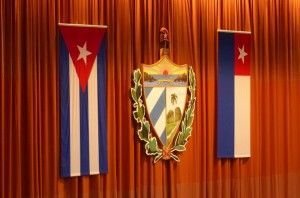 Undoubtedly one of the most-discussed articles during the recently concluded first ordinary session of the IX Legislature of the National Assembly of People’s Power was article 68, which establishes the concept of marriage between two people.
Undoubtedly one of the most-discussed articles during the recently concluded first ordinary session of the IX Legislature of the National Assembly of People’s Power was article 68, which establishes the concept of marriage between two people.
The change with respect to the current constitution is that the one approved in 1976 includes marriage as the union between a man and a woman, while the current proposal, with a revolutionary vision, does not define sex, sexual orientation, or gender identity.
In this regard, the press spoke with Deputy Dr. Mariela Castro Espín. She said during the discussion that this article mixes the rights proposed by the Constitution to guarantee the institution of marriage with the responsibilities of mothers and fathers.
“That is a technical question, I wanted to separate them because simply when it comes to operationalizing all this in the laws, it makes it easier to differentiate them, and also, it reproduces a reproductive or reproductivist vision of marriage.
She stated that there are unmarried people who, while others marry and are unable or unwilling to have them, hence marriage does not pursue only the reproductive end.
The director of CENESEX commented that marriage has several purposes, among them the desire, the pleasure of living together where shared responsibilities are assumed in the home. “That’s fine, but then marriage takes on another purpose, another project, which is that of the children.
“If we’re going to consider the reproductive responsibility of mother and father within marriage, then when we put all this into practice in the law, we have to guarantee the same options and possibilities to heterosexual couples, same-sex couples and people who decide to become single mothers or fathers,” she said.
Dr. Mariela Castro also mentioned that the current constitutional reform has a more inclusive vision. She described the achievement of human rights-based marriage as wonderful.
She commented that no person can be excluded or discriminated against for any reason. She also said that today Cuban society has more knowledge and can openly discuss these issues with the intention of protecting couples who wish to join together, without exclusion.
Despite its proposal, the National Assembly adopted that the article should remain unchanged, but that it would be enriched by the views of the people.
“That is a wonderful revolutionary achievement,” she said, and continued, “hopefully, when the document is submitted for analysis by the people, the majority will be able to understand the very important step we are taking in the field of human rights, in recognizing all the rights of people because of their sexual orientation and gender identity, because we have had difficulty reproducing the prejudices we have learned.
She reflected that there are people in the population with their dogmas, prejudices and beliefs who consider that homosexual people are not fit, capable of being mothers and fathers.
“And I repeat what I said in committee: motherhood and fatherhood is not a gift from nature, it is not an instinct as they believe: it is a learning experience”, based on observation of other mothers and fathers.
The only difference between heterosexual and homosexual mothers and fathers is simply their sexual orientation, she said.
“There are even those who believe that homosexuality is a disease, it sticks, it will be learned. No. If it were that simple, there would be no homosexuals, because they would be heterosexuals just like their parents were.
“It is an era in which this obscurantist, manipulative and retrograde thinking is being overcome with science, with scientific knowledge, inspired by the humanist spirit and based on the interest of the Cuban State in advancing the human rights agenda,” she concluded.
To make up Cuba, all the people contribute to and contribute to social and economic transformations.
This is an intentional and tempered draft project in the sense of the historical moment with the aim of guaranteeing more rights, more inclusion, independence, sovereignty and equality.
In the Background of the Wifi

In the Background of the Wifi…
Author: Claudia Padrón Cueto
September 24, 2015
A CubaNews translation.
Edited by Walter Lippmann.
For the browsing experiences of web users to remain pleasurable in the country, the information strategy of our society must achieve a greater synergy. This is the responsibility of all those who are concerned with the education on the use of Information Technologies.
This past holiday season will probably be remembered as the “wifi summer in Cuba”. Undoubtedly the period was marked by the extension –through this type of connection– of the opportunities for web surfing at 2 CUC’s an hour. And while it is true that the price is still high for most, the wifi is welcomed.
Every day people go to the squares, parks or places with wifi reach to make use of internet navigation services. Many go to make video calls (using IMO) or check their Facebook profiles; while others find –in the wake of the wifi– a way to profit.
This is how it works in the city of Pinar del Rio: At the different access points some young people wait for new arrivals at the park or connection area and immediately offer “one hour of connection for only 1 CUC”, that is, half the official price.
They act as go-between working on commission for a percentage of the total amount collected. They take their customers/users to other persons who use their PCs and cell phones with wireless connection and sell the service to these temporary users.
Connectify Hotspot is a software –one of many– that allows sharing Internet by several users. Of course, in accepting this browsing option the speed and original connectivity potential is reduced, but still it is possible to access the web and even make video calls.
In addition to these agents of shared wifi, and of those others who hoard coupons to then sell them for 75 Cuban pesos [official price 2 CUC = 50 Cuban pesos], this journalist and some close friends were able to confirm the existence of other “merchants” who charge for a simple advice, for example: how to recharge a Nauta account that only requires to enter portal@…, and from this address type the card code.
This is a simple procedure that only takes a few minutes; but lack of knowledge makes some users resort to these “advisers” who take advantage of the inexperience and charge for the service 10 Cuban pesos. Such practices also involve certain risks, because those who offer “help” could even keep the data of the customer (username and password) and then use this information to access their accounts.
There are many who connect without even knowing how to turn on the wifi on their phone or what a browser is, what a web site, a web page or a network profile are. This is simply because without practice there is no possible knowledge. And such lack of knowledge frustrates the browsing experience of some, while others fill their pockets.
It’s been three months after the opening of the areas of wireless access service –indispensable in any modern society—and they are very much appreciated; but still the telecommunications company needs to improve its management so it is not limited only to the signing of contracts. It is also necessary to expand the benefits at the Joven Club [Free Computer Service Facilities] and provide guidance on the use of new technologies to solve the most dissimilar demands and problems of Cuban society in its way to computerization.
Schools should also join in this instruction task considering that today’s students options lead to new tools and benefits, provided by the use of ITs. These options need to be managed with dexterity so that users do not become easy preys to deception and theft.
LGBTI Human Rights and National Unity
Speech at National Assembly on LGBTI Rights and National Unity
By Luis Ángel Adán Roble
Posted: 22 Jul 2018 09:59 PM PDT
Translated and edited by Walter Lippmann for CubaNews
Subscribe to Blog via Email
| M | T | W | T | F | S | S |
|---|---|---|---|---|---|---|
| 1 | ||||||
| 2 | 3 | 4 | 5 | 6 | 7 | 8 |
| 9 | 10 | 11 | 12 | 13 | 14 | 15 |
| 16 | 17 | 18 | 19 | 20 | 21 | 22 |
| 23 | 24 | 25 | 26 | 27 | 28 | |

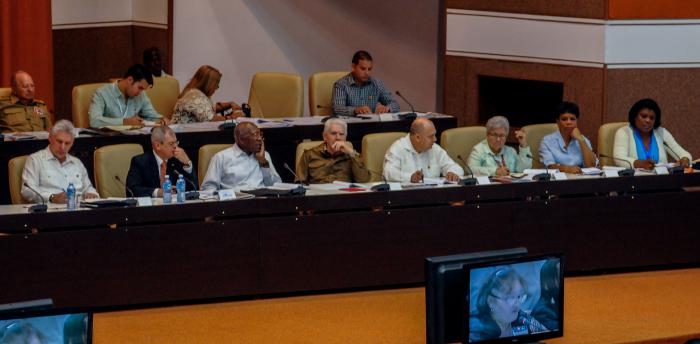
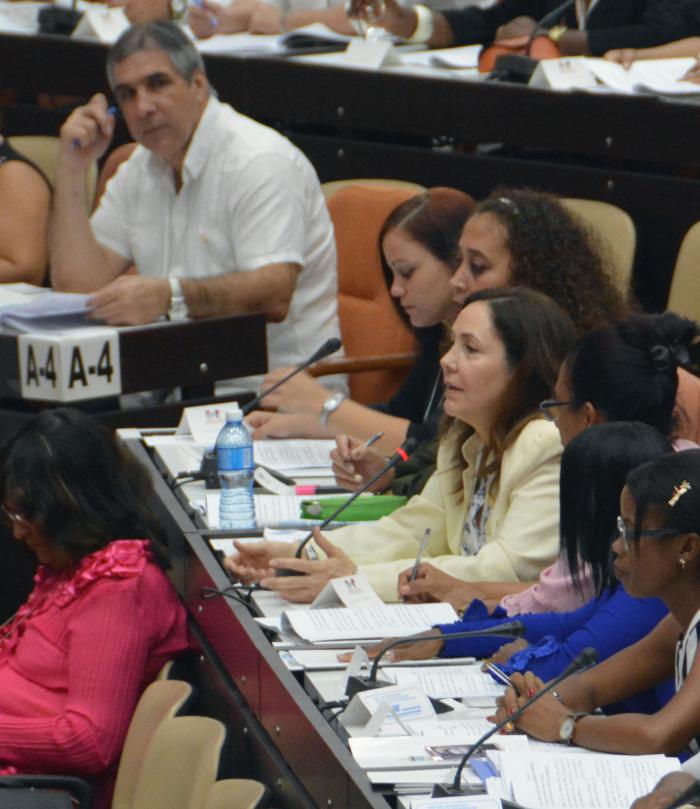
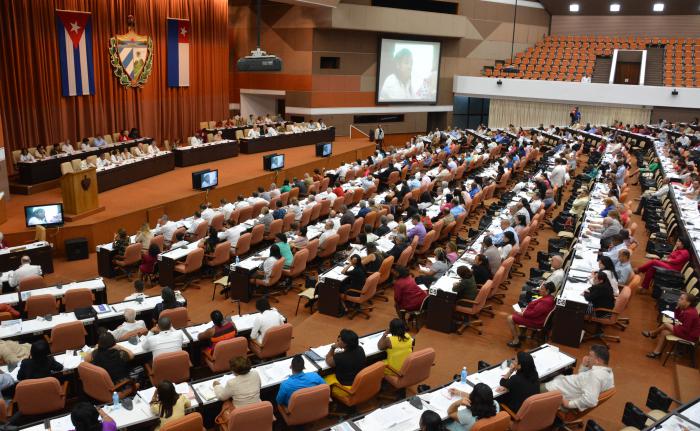

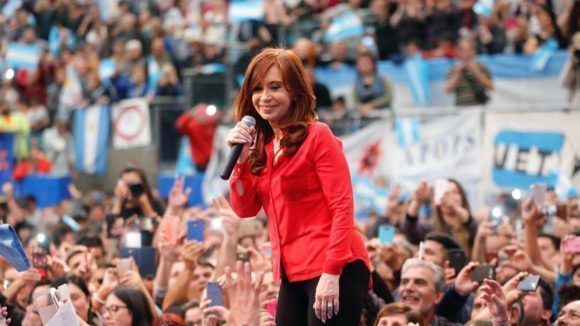

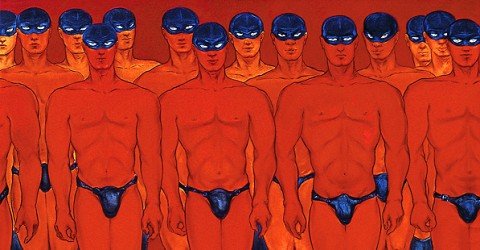
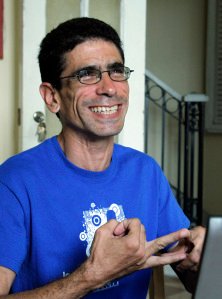


You must be logged in to post a comment.